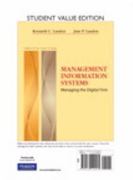Question
Read and respond the questions on the end: When David Heath advises entrepreneurs to approach his product, he speaks from his personal experience. Before officially
Read and respond the questions on the end:
When David Heath advises entrepreneurs to approach his product, he speaks from his personal experience. Before officially launching the clothing brand Bombs in 2013, Heath walked through New York City with a prototype sock backpack that he handed out to almost everyone he met, including the homeless community, that he considered his target audience. This practical interaction gave Heath useful information and direct feedback that he considered when designing the perfect sock. Staying close to your customers is essential to maintaining a mission-centered work culture, Heath said at a recent meeting at the School of Business. He still personally delivers socks to the homeless during charity events, and the participation of all employees is strongly recommended. Bombas performs up to 15 donation events each month, including breakfast service at shelters and the delivery of night soups in winter.
"We put a lot of emphasis on the company culture," explains Heath. "The people in our organization really live what we do... They come to work every day knowing that they are fighting for something because they have established relationships in the community and can see the direct impact. " As part of a recent crop of for-profit charities that pledge to give their product away every time they make a sale, New York-based Bombas has donated more than 25 million socks to homeless shelters. Along the way, annual sales have exceeded $100 million, with year-over-year growth of around 100 percent for what has been called "the most comfortable and high-quality pair known to man". Heath, who studied business administration at Babson College, got the idea from Bombas in 2011 when he read that sock were the most sought-after garment in US homeless shelters. UU. At the time, the new shoe company Toms (founded in 2006) promised to donate a pair of shoes for each pair sold, a model adopted by Warby Parker when the glasses manufacturer was launched in 2010. Heath thought it might work for socks too.
Bombas funded $145,000 in 2013 and then raised another $1 million in 2014 from friends and family. That same year, Heath made a $200,000 investment with Shark Tank's Daymond John. Subsequently, Bombas raised another $3 million in Series A funds. In its first two and a half years of activity, Bombas sold (and donated) 1 million pairs of socks; the company surpassed 25 million donations at the end of last year. Adding to the company's social appeal, in 2017, Bombas became a Certified B Corporation, a designation awarded to companies that meet high standards of sustainability, equal income and community impact. Research suggests that millennial and Z-generation consumers really value the fact that businesses have a social mission. As with any startup, Heath recognized some challenges over the past six years. At one point, Facebook's reliance on Pumps for marketing became a problem when the social media giant changed its algorithm in a way that hurt the cost per consumer acquisition. This was a lesson on the need to diversify marketing channels. They have also overcome obstacles to maintaining sufficient inventory. One year, Bombas projected Christmas sales so far below expectations that the company had to reimburse more than 1 million orders from customers that could not be met on time.
Another aspect of the learning curve was discovering how to design a sock that would be more useful to the homeless community. Initially, Bombas donated the same socks he was selling. But the homeless continued to request socks in darker colors, which the company's charitable partners explained was due to a preference for socks that would not show wear. Bombas modified the product to reflect that color preference, in addition to adding features such as antimicrobial treatment and reinforced seams. To better measure the social impact of sock donation, Bombas is collecting more quantitative data to determine how communities' benefit from their donations. As an anecdote, Heath already knows that Bombs is making a difference. By giving socks to a homeless shelter in North Carolina, one of more than 3,000 partners across the country, the company was able to help the shelter save about $30,000 that was used to send two young people to community college, he said.
Bombas is now expanding to channels beyond socks, including t-shirts How leadership influences the company's culture Answer the following questions:
1. Describe transformational leadership and explain how managers can participate in it. How is transformational leadership different from transactional leadership? Please explain.
2. What kind of leadership style does Pumps CEO David Heath implement in managing the company? Why? Please explain.
3. Would you say Heath is a charismatic leader? Please explain.
4. Discuss the(s) source(s) of power that David Heath implements in his leadership to affect other people's behavior.
5. Discuss how Heath motivates his followers using the guidelines of House's Path-Goal Theory.
Step by Step Solution
There are 3 Steps involved in it
Step: 1

Get Instant Access to Expert-Tailored Solutions
See step-by-step solutions with expert insights and AI powered tools for academic success
Step: 2

Step: 3

Ace Your Homework with AI
Get the answers you need in no time with our AI-driven, step-by-step assistance
Get Started


